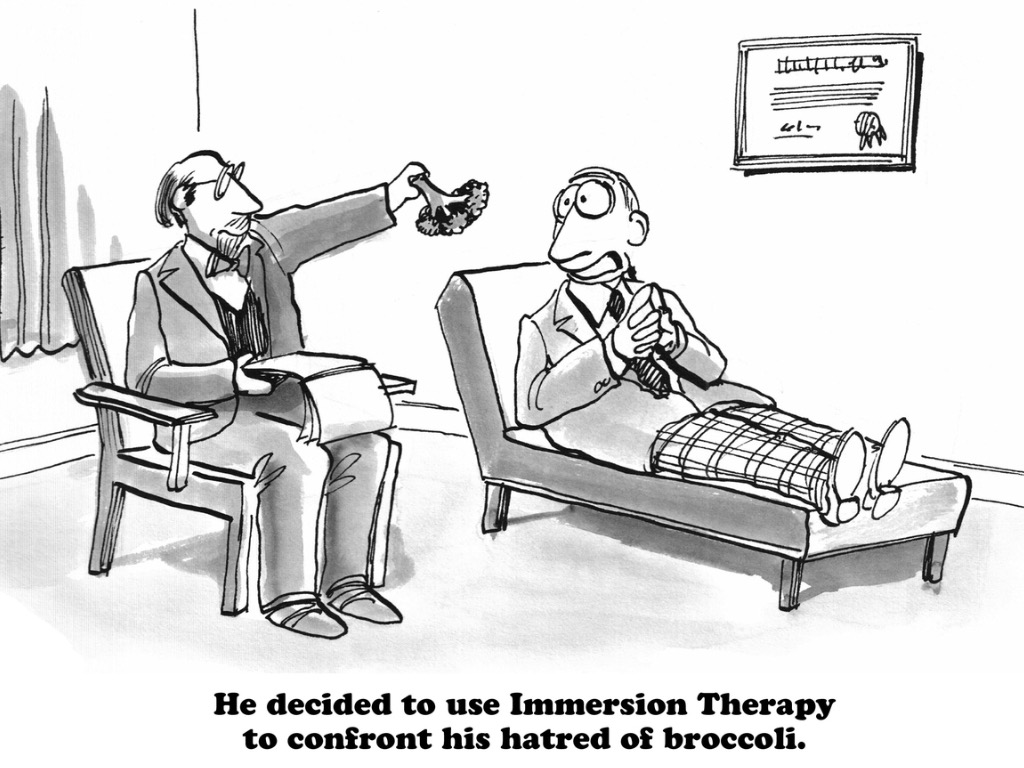If people curse you, do not curse them back but bless them instead. (Rule of St. Benedict 4. 32)
Sadly, the right to retaliate is not an inalienable right. It may be necessary to fight your enemies and to defeat them, for the sake of the common good. But the Christian must not inflict harm merely for the satisfaction of revenge. Yes, it’s hard. And unfortunately, this isn’t just St. Benedict’s idea. This is Jesus himself Luke 6:28.
Can we give them the light-activated puzzle map of the United States? If they fail to replace Montana, Alabama and Arizona, they’ll be learning about Helena, Montgomery and Phoenix every time the headlights of a passing car flicker through a chink in the curtains. If they bury it under blankets in the closet, in the middle of the night a strangled voice will say, “New Jersey: Trenton.”
Not only are we not allowed to give their children motion-sensitive, musical toys with no OFF button: God requires us to pray for them as well.
When we suffer an insult from another person, we have a reaction, anger, which is as natural as the body’s inflammatory response to injury. If you didn’t feel anger at being wronged, it would be an emotional failure, just as it would be sick for your body not to react to a wound. But just as your inflammatory response can itself become a problem if it doesn’t subside, so anger can become destructive to the person who feels it.
St. Paul describes anger as the devil’s foothold Ephesians 4:26-27 (also translated “place,” “room,” “opportunity.”) Anger serves as the devil’s foothold because it’s not in itself wrong. All the other vices are absolutes. Only anger has this ambiguous quality of being at the same time justified and harmful. St. Paul tells us, “Be angry but do not sin.” This means that anger itself is not the sin. The sin is what the devil tempts you to do when you’re angry.
Your anger is just. The wrong is real. To dismiss the offense would flaunt the law of God. But because the anger is justified, the devil can easily slip in temptations to vengeful acts which are against God’s law too. So, anger functions as the gateway through which righteous people can be tempted to do things which normally would repel them.
When the thirst for revenge sets in, it’s like a bacterial infection that develops in a contaminated wound. If it isn’t addressed immediately, it can become chronic, like vengeful feelings that persist for years after an offense. The infection can invade your entire body and ruin your health. Vengeful feelings can obsess you even after the perpetrator is dead.
It’s true that revenge can attain to the level of tragedy. There are wrongs that no mere mortal can bear alone. But usually the vindictive person is shallow and selfish. It’s the conceited person who punishes someone for an honest remark. It’s the spiteful person who exacts retribution for a petty grievance. You don’t want to become that person.
This is why God prescribes such a horse-pill. Praying a blessing on the person who has wronged you is like swallowing one of those enormous pills. The prayer operates like an antibiotic within the soul to combat vengeance. You don’t have to be enthusiastic about it, not anymore than you have to like those pills. It may take you more than one try to get it down. Your natural gag reflex might seem at first insurmountable. But even a nauseated blessing through clenched teeth will begin to alter your interior state. Whenever you have vengeful feelings, say, “God bless [so and so].” That’s all you have to do, but you may have to do it many times, every three hours for weeks. Daily for months. Weekly for years.
You’re not requesting on their behalf a life of luxury, flippant and carefree. Still less are you asking for evildoers to continue to do harm with impunity. When you bless those who’ve mistreated you, you’re asking God to intervene in their lives. You may have detailed ideas for how exactly God could proceed. He will consider your suggestions fairly. But at the end of the day, you surrender judgment to Christ.
Who is the person who does inspire respect? It’s the one who can laugh off an insult and make a joke of it. The one who sticks to principle in the face of harassment is inspiring, not the one who lashes out in fury. The one who gets back up after being knocked down and keeps right on running toward the goal: that’s who you want to be. Outmaneuver your opponents. Leave them in the dust, and leave revenge in the hands of God. “‘Vengeance is mine, I will repay, says the Lord.‘”










